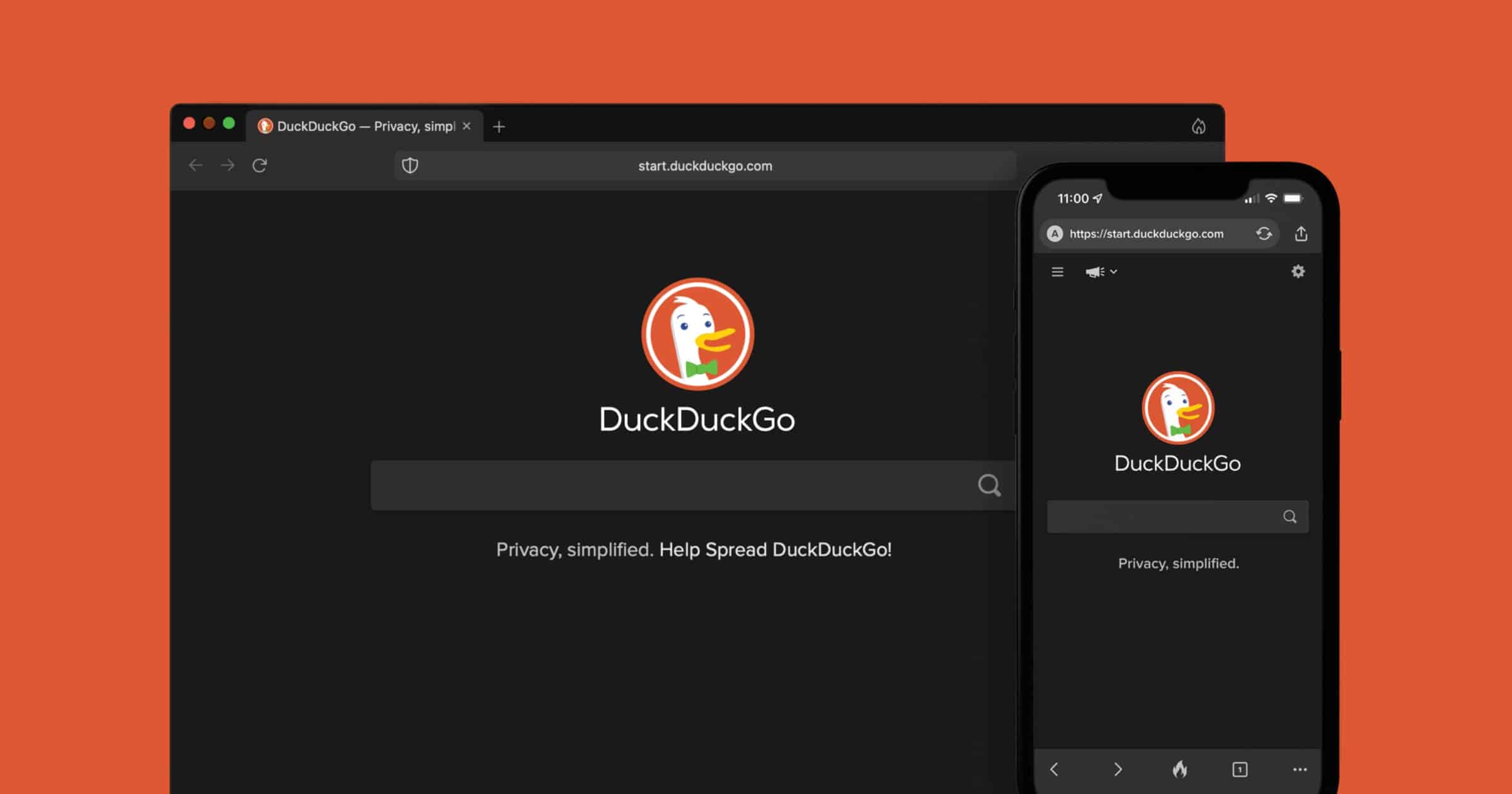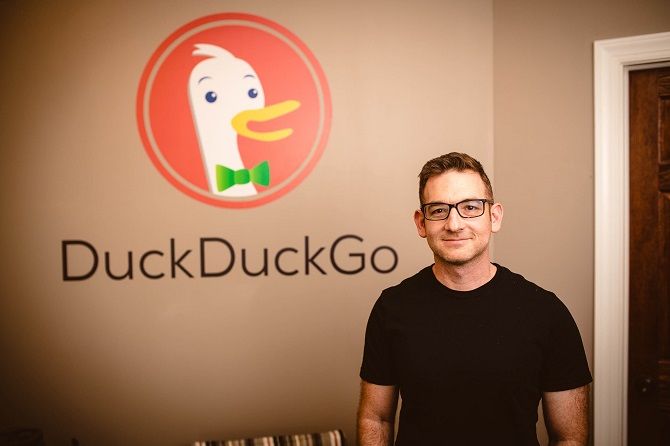What is DuckDuckGo and Why Does it Matter?
DuckDuckGo is a popular private search engine that has been gaining traction in recent years. Founded in 2008 by Gabriel Weinberg, the search engine has been designed to provide users with a more private and secure online experience. Unlike other search engines, DuckDuckGo does not track user data or store search history, making it an attractive option for those concerned about online privacy.
So, why does DuckDuckGo matter? In today’s digital age, online privacy is a growing concern. With the rise of big data and surveillance capitalism, many users are becoming increasingly aware of the risks associated with sharing their personal data online. DuckDuckGo’s commitment to privacy has resonated with users, who are seeking alternative search engines that prioritize their online security.
As a result, DuckDuckGo has experienced significant growth in recent years. According to SimilarWeb, the search engine has seen a 50% increase in traffic over the past year, with over 50 million users worldwide. This growth is a testament to the growing demand for private search engines and the importance of online privacy in the digital age.
But who owns DuckDuckGo? Despite its growing popularity, the search engine remains relatively unknown in terms of its ownership structure. In the next section, we will delve into the founder’s story and explore the circumstances that led to the creation of DuckDuckGo.
The Founder’s Story: Gabriel Weinberg’s Vision
Gabriel Weinberg, the founder of DuckDuckGo, has a unique background that shaped his vision for the search engine. With a degree in Physics from MIT, Weinberg began his career in the tech industry as a software engineer. However, it was his experience as a entrepreneur that led him to create DuckDuckGo.
In 2006, Weinberg founded NamesDatabase, a people search engine that allowed users to search for individuals based on their names. Although the company was successful, Weinberg became increasingly concerned about the amount of personal data being collected and stored by search engines. He realized that users were not aware of the extent to which their data was being tracked and used for targeted advertising.
This concern led Weinberg to create DuckDuckGo, a search engine that would prioritize user privacy and anonymity. Launched in 2008, DuckDuckGo was initially met with skepticism by the tech community. However, Weinberg’s persistence and commitment to his vision eventually paid off, as the search engine began to gain traction.
Today, Weinberg is recognized as a pioneer in the private search engine space. His vision for DuckDuckGo has inspired a new generation of entrepreneurs and developers who are committed to creating a more private and secure online experience. As the search engine continues to grow, Weinberg remains committed to his core values, ensuring that DuckDuckGo remains a beacon of hope for those seeking online anonymity.
But what drives DuckDuckGo’s success? In the next section, we will explore how to use DuckDuckGo for private searching, including its features and benefits.
How to Use DuckDuckGo for Private Searching
Using DuckDuckGo for private searching is a straightforward process that requires minimal setup. To get started, simply navigate to the DuckDuckGo website and enter your search query in the search bar. Unlike other search engines, DuckDuckGo does not require you to create an account or provide any personal information.
One of the key features of DuckDuckGo is its use of encryption to protect user data. When you enter a search query, DuckDuckGo encrypts the data using HTTPS, ensuring that it remains secure and private. Additionally, DuckDuckGo does not store any user data, including search history or IP addresses.
DuckDuckGo also offers a range of features that enhance the private searching experience. For example, the search engine includes a “bang” feature that allows users to search specific websites directly from the DuckDuckGo search bar. This feature is particularly useful for users who want to search specific websites without having to navigate to them individually.
Another feature of DuckDuckGo is its use of “instant answers.” These are pre-formatted answers to common search queries that are displayed directly in the search results. Instant answers are particularly useful for users who want to quickly find information without having to click through to a website.
Overall, using DuckDuckGo for private searching is a simple and effective way to protect your online privacy. By encrypting user data and avoiding the collection of personal information, DuckDuckGo provides a secure and private searching experience that is unmatched by other search engines.
But how does DuckDuckGo generate revenue without collecting user data? In the next section, we will explore the company’s business model and discuss how it maintains its independence while avoiding the collection of user data.
The Business Model: How DuckDuckGo Generates Revenue
DuckDuckGo’s business model is based on generating revenue through affiliate partnerships and advertising. The company has partnered with various online retailers, such as Amazon and eBay, to earn a commission on sales generated through its search engine. Additionally, DuckDuckGo displays ads on its search results page, but unlike other search engines, it does not track user data to deliver targeted ads.
DuckDuckGo’s affiliate partnerships are a key component of its revenue stream. When a user clicks on a product link in the search results, DuckDuckGo earns a commission on the sale. This model allows DuckDuckGo to generate revenue without compromising user privacy.
In addition to affiliate partnerships, DuckDuckGo also generates revenue through advertising. However, unlike other search engines, DuckDuckGo does not use user data to deliver targeted ads. Instead, the company uses contextual advertising, which displays ads based on the search query rather than user data.
DuckDuckGo’s commitment to user privacy has not compromised its ability to generate revenue. In fact, the company has reported significant revenue growth in recent years, with estimates suggesting that it generates tens of millions of dollars in revenue annually.
So, who owns DuckDuckGo? Despite its significant revenue growth, DuckDuckGo remains an independent company. In the next section, we will explore the investors behind DuckDuckGo and discuss the company’s funding rounds.
Who Owns DuckDuckGo? Uncovering the Investors
DuckDuckGo has received funding from several investors, including Union Square Ventures and Omers Ventures. In 2011, the company raised $3 million in funding from Union Square Ventures, a venture capital firm that invests in early-stage companies. This funding round helped DuckDuckGo expand its team and improve its search engine.
In 2018, DuckDuckGo raised an additional $10 million in funding from Omers Ventures, a venture capital firm that invests in growth-stage companies. This funding round helped DuckDuckGo further expand its team and improve its search engine, as well as explore new revenue streams.
Despite receiving funding from investors, DuckDuckGo remains an independent company. The company’s founder, Gabriel Weinberg, has stated that he values his independence and is committed to maintaining DuckDuckGo’s mission of promoting online privacy.
So, who owns DuckDuckGo? While the company has received funding from investors, it remains an independent entity. The company’s ownership structure is not publicly disclosed, but it is clear that Gabriel Weinberg and his team are committed to maintaining DuckDuckGo’s independence and mission.
As DuckDuckGo continues to grow and evolve, it will be interesting to see how the company navigates the challenges of the digital landscape. In the next section, we will speculate on the future of DuckDuckGo and discuss potential developments and challenges.
What Does the Future Hold for DuckDuckGo?
As DuckDuckGo continues to grow and evolve, it’s likely that the company will face new challenges and opportunities. One potential development on the horizon is the increasing use of artificial intelligence (AI) in search engines. DuckDuckGo has already begun to explore the use of AI in its search results, and it’s likely that the company will continue to invest in this area in the future.
Another potential development is the growing demand for private search engines. As more and more people become aware of the risks of data tracking and the importance of online anonymity, DuckDuckGo is well-positioned to capitalize on this trend. The company’s commitment to user privacy and its innovative approach to search engine technology make it an attractive option for users who value their online security.
However, DuckDuckGo also faces challenges in the future. One of the biggest challenges is the dominance of Google in the search engine market. Google’s vast resources and market share make it a formidable competitor, and DuckDuckGo will need to continue to innovate and improve its search engine technology in order to stay competitive.
Despite these challenges, DuckDuckGo’s future looks bright. The company’s commitment to user privacy and its innovative approach to search engine technology make it an attractive option for users who value their online security. As the demand for private search engines continues to grow, DuckDuckGo is well-positioned to capitalize on this trend and become a major player in the search engine market.
But what does the future hold for DuckDuckGo in terms of its ownership structure? Will the company remain independent, or will it be acquired by a larger company? In the next section, we will discuss the importance of private search engines in the digital age and why DuckDuckGo’s ownership structure matters.
Why Private Search Engines Matter in the Digital Age
In the digital age, online privacy is a growing concern. With the rise of big data and surveillance capitalism, many users are becoming increasingly aware of the risks associated with sharing their personal data online. Private search engines like DuckDuckGo play a crucial role in promoting online privacy and protecting user data.
One of the main risks of using traditional search engines is data tracking. Many search engines collect user data, including search history and IP addresses, and use it to deliver targeted ads. This can be a major concern for users who value their online anonymity. Private search engines like DuckDuckGo, on the other hand, do not collect user data and do not track user behavior.
Another benefit of private search engines is the protection of online anonymity. When users search for sensitive information online, they may not want their search history to be tracked or recorded. Private search engines like DuckDuckGo provide users with a safe and secure way to search for information online without compromising their anonymity.
DuckDuckGo’s commitment to online privacy is a major factor in its growing popularity. The search engine’s user base has grown significantly in recent years, and it is now considered one of the leading private search engines in the world. By promoting online privacy and protecting user data, DuckDuckGo is playing a crucial role in shaping the future of the internet.
As the demand for private search engines continues to grow, it is likely that DuckDuckGo will remain a major player in the market. The search engine’s commitment to online privacy and its innovative approach to search engine technology make it an attractive option for users who value their online security.
In the next section, we will summarize the main points and reiterate the significance of understanding who owns DuckDuckGo. We will also encourage readers to support the search engine and its mission to promote online privacy.
Conclusion: The Significance of DuckDuckGo’s Ownership
In conclusion, understanding who owns DuckDuckGo is crucial in today’s digital landscape. As a private search engine, DuckDuckGo has made a commitment to protecting user data and promoting online privacy. The company’s ownership structure, including its investors and funding rounds, has played a significant role in its growth and success.
By understanding who owns DuckDuckGo, users can make informed decisions about their online activities and choose a search engine that aligns with their values. DuckDuckGo’s mission to promote online privacy and protect user data is a significant factor in its growing popularity, and it is likely that the company will continue to play a major role in shaping the future of the internet.
As we have seen, DuckDuckGo’s ownership structure is complex and involves several investors, including Union Square Ventures and Omers Ventures. The company’s funding rounds have provided it with the necessary resources to expand and innovate, and its commitment to online privacy has made it a leader in the private search engine market.
In the end, understanding who owns DuckDuckGo is not just about uncovering the mystery behind the company’s ownership structure. It is about recognizing the importance of online privacy and the role that private search engines play in protecting user data. By supporting DuckDuckGo and its mission, users can help promote a safer and more secure online environment for everyone.




:max_bytes(150000):strip_icc()/Duck_Duck_go-45372702dc714243b7d30411c3514b09.jpg)
